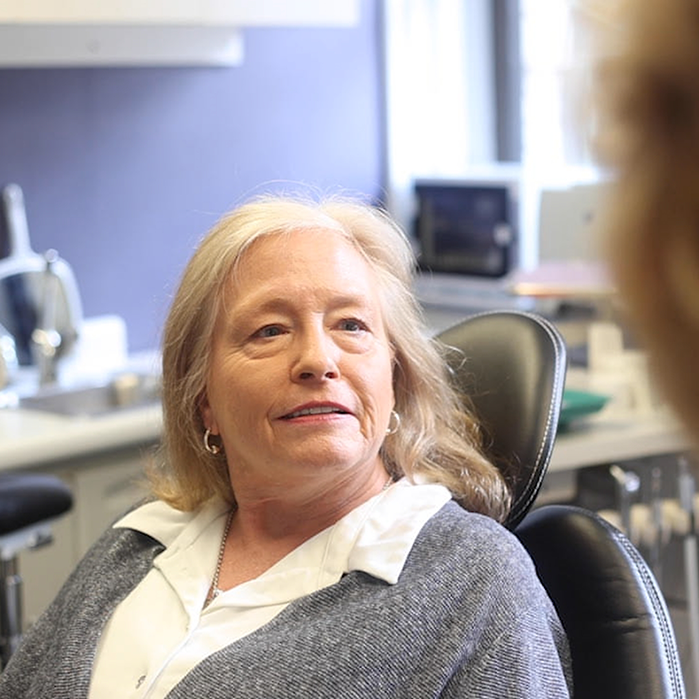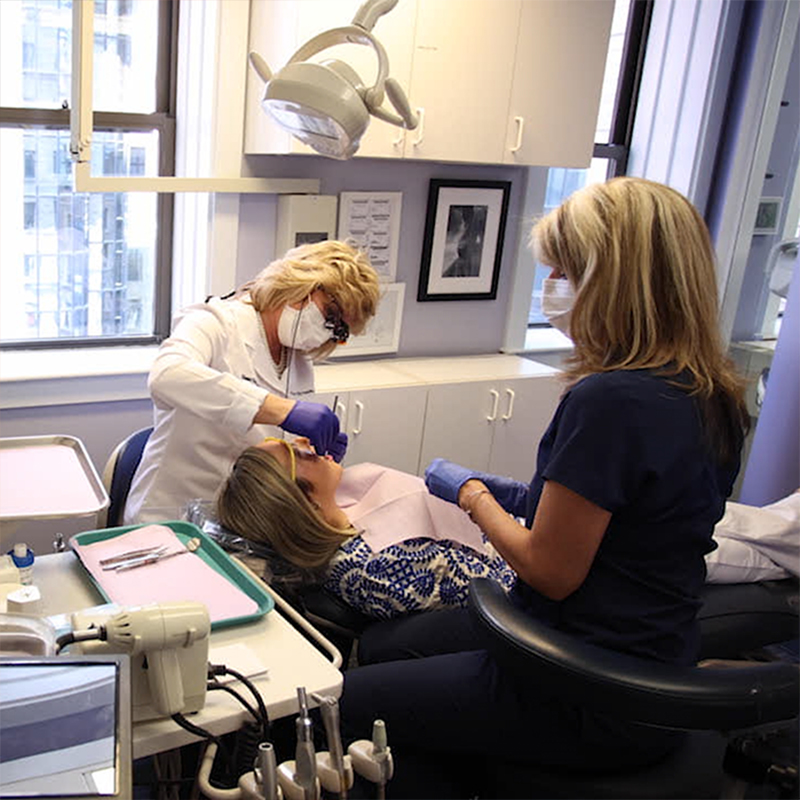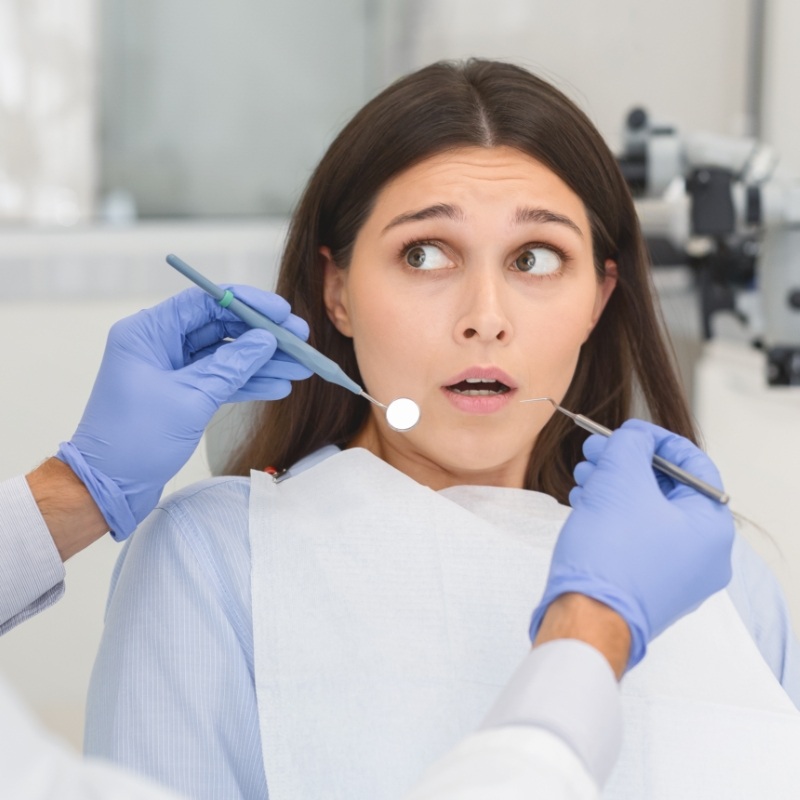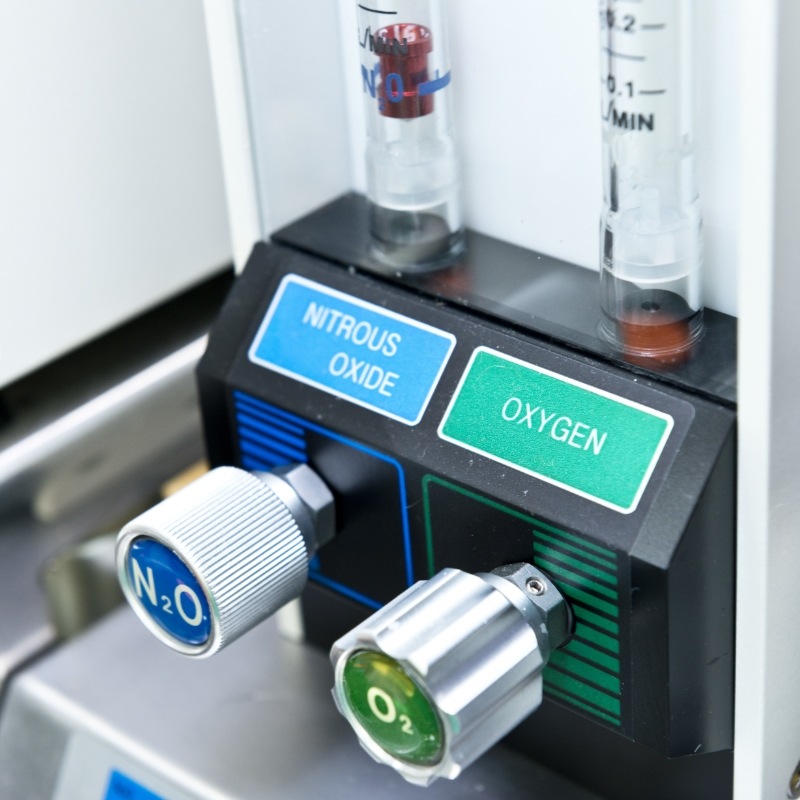Sedation Dentist – Boston, MA
A Relaxed Appointment Every Time
At Dental Health & Wellness Boston, we are committed to making your dental appointments as comfortable and anxiety-free as possible. For our patients that have dental fears or phobias, and for patients requiring longer, more complex procedures that might last several hours, we offer a safe, easy way to relax through your appointments: sedation dentistry in Boston.
Why Choose Dental Health & Wellness Boston for Sedation Dentistry?
- Multiple Methods of Sedation
- Friendly, State-of-the-Art Dental Office
- We Put Patient Relationships First
How We Can Help

At Dental Health & Wellness Boston, helping patients overcome dental phobias is a passion of Dr. Smith’s. We offer anxiety reduction and sedation dentistry techniques to make your dental visit comfortable, and we discuss in detail, our plans for your dental care before any treatment begins. Creating a trusting relationship with our patients is key to providing the best dental care possible, with personalized plans to address any concerns and minimize dental fears that may have hindered oral health in the past.
“As a child, I had horrible experiences at the dentist and as an adult, my relationships with dentists have always been stressful, resulting in me neglecting my teeth. That is, until I met Dr. Smith and her staff. I had been in need of routine cleaning as well as major dental work for a long time. Dr. Smith and her staff made a frightening, stressful and painful experience a calm and painless one. I only wish I had met her many years ago! ~A.S
Sedation Dentistry Experts

Known as sedation or sleep dentistry, oral medications are administered in pill form before your appointment, allowing you to be alert and able to answer questions while reducing the emotional anxiety and stress caused by your dental phobia.
A member of the DOCS Sedation Care Network, Dr. Jill Smith’s practice provides oral conscious sedation, nitrous oxide, and relaxation techniques – and has received certifications and advanced training as well as facility licenses and permits to provide this wonderful service to Dental Health & Wellness Boston patients.
Dental Phobias and Health Consequences

It is estimated that 9% to 15% of Americans avoid seeing the dentist because of dental phobias that cause anxiety and fear – that amounts to approximately 30 million to 40 million people! The causes of dental fear range from nervousness about pain or sensation, bad experiences with a former dentist, or being self-conscious about the current state of their teeth. Concerns such as lack of control and fear of the unknown are often enough to keep a person from seeking needed treatment. Even the close proximity between patient and dentist can cause anxiety for some – but this comes with both dental and health consequences.
By delaying, or forgoing dental care altogether, the risk of gum disease and tooth loss greatly increases. As studies have shown, the systemic connection between oral health and overall health is another cause for concern – aside from dental issues arising, heart conditions and lung infections stemming from poor dental health can become exacerbated over time, even life-threatening.
Oral Conscious Sedation

With oral conscious sedation, you’ll be prescribed medication to take at home on the day of your appointment. That way, when you arrive, you’ll already be nice and calm. You’ll remain awake the entire time, but the visit will probably go by very fast, and you may only have fuzzy memories afterward.
Nitrous Oxide Sedation

Perfect for those who just need a little help to get through their dental visits, this method involves a patient inhaling an odorless gas through a small nasal mask. It quickly helps them feel warm and happy, plus it has a slight analgesic effect. After the mask is removed, the patient will feel completely normal after a few minutes.
For our nitrous oxide patients, gas will be gone within 5 minutes following the procedure and you can resume all normal activities after.
What To Expect for Conscious Sedation

Before sedation care is recommended, Dr. Smith extensively reviews the existing medical conditions and medications of each patient. Once cleared for sedation care, we recommend the following preparation and post-visit steps:
- Avoid eating or drinking for six hours before your appointment
- Arrange transportation from a friend, family member, companion, etc. to escort you to and from treatment
- Once you return home from treatment, take the day off to rest
- Do not drive or operate heavy machinery for 24 hours
- Stay hydrated by drinking plenty of liquids
